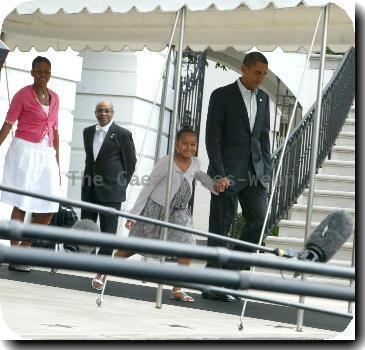US drug stocks help world stock markets recover as earnings season picks up
By Pan Pylas, APTuesday, January 19, 2010
US drug stocks help world markets recover
LONDON — European markets closed higher Tuesday as drug stocks led an advance on Wall Street amid speculation that President Barack Obama’s health care plan may be derailed if Republicans win a Senate seat in Massachusetts.
In Europe, the FTSE 100 index of leading British shares ended up 18.75 points, or 0.3 percent, at 5,513.14 while Germany’s DAX rose 57.93 points, or 1 percent, at 5,976.48. The CAC-40 in France was 32.21 points, or 0.8 percent, higher at 4,009.675.
European stocks had been down all day until the U.S. open after some disappointing economic data and concerns about upcoming U.S. corporate earnings.
Even though Citigroup Inc. did little to excite with a $7.6 billion loss in the final three months of 2009, U.S. stocks actually bounced at the bell.
The Dow Jones industrial average was up 76.48 points, or 0.7 percent, at 10,686.13 while the broader Standard & Poor’s 500 index rose 8.48 points, or 0.8 percent, to 1,144.51.
Notable gainers in the U.S. included Merck & Co. and Pfizer Inc., who topped the Dow leader board. Johnson & Johnson was not far behind either.
“It looks like a Massachusetts win for Republicans is perceived as blocking overhaul of the U.S. health industry, so less government interference in pharma pricing,” said Neil Mackinnon, global macro strategist at VTB Capital.
A Republican victory in Massachusetts would represent a blow to Obama’s plan to reform health care as it would eliminate the Democrats’ 60-seat supermajority in the Senate. The Democrats need all 60 votes to overcome Republican delaying tactics in the 100-seat Senate.
“A Republican victory in what has hitherto proved a Democratic stronghold would put a significant dent in the chances of controversial legislation, including health care reform, being passed by the upper house,” said Jeremy Batstone-Carr, director of private client research at Charles Stanley.
In addition to the election outcome, investors will continue to focus on corporate earnings over the rest of the week. Banks will be in the spotlight, with Citigroup followed later in the week by Goldman Sachs Group Inc., Bank of America Corp. and Morgan Stanley.
Over the week, 65 companies in the S&P 500 post their results this week, constituting about a fifth of the S&P’s total value. As well as the banks, earnings from Google Inc., IBM Corp. and McDonald’s Corp. will be closely monitored.
Though attention is primarily on the U.S., investors in Europe have had plenty of news to digest. On the corporate front, Kraft Foods Inc. finally succeeded in persuading Cadbury PLC’s board to accept and recommend to shareholders a takeover offer after improving its bid to $19.5 billion.
Cadbury topped the list of risers on the FTSE 100, gaining just over 3.5 percent to 836 pence a share, more or less in line with the offer price of 840 pence a share.
On the economic front, investors in Britain were surprised to hear that the inflation rate spiked to 2.9 percent in December. That was way higher than market expectations for a 2.5 percent inflation rate and sent the pound flying as traders priced in the possibility of earlier than anticipated interest rate hikes from the Bank of England.
The pound rose as high as $1.6457, its strongest level for over a month but by mid-afternoon in London was trading at $1.6365, up 0.2 percent on the day.
The euro, meanwhile, was hit after the ZEW institute said its main investor confidence index fell for the fourth month running, stoking fears that the recovery in Germany, Europe’s biggest economy was grinding to a halt.
The euro has been on the retreat for the best part of a month partly because of mounting market fears about Greece’s public finances, though they were partly assuaged earlier by a fairly upbeat assessment from the Moody’s credit ratings agency.
The euro was trading 0.8 percent lower on the day at $1.4261.
Earlier in Asia, Japan’s Nikkei 225 stock average slipped 90.18 points, or 0.8 percent, to 10,764.90.
After the market closed, Japan Airlines filed for bankruptcy, ending months-long speculation about its fate and launching a massive overhaul to shed the fat and inefficiency that hobbled Asia’s biggest airline.
JAL shares, which have lost more than 90 percent of their value over the last week, tumbled 20 percent Tuesday to 4 yen before finishing flat at 5 yen. The company is now essentially worthless, with a market capitalization of about 10.9 billion yen ($120 million) — less than the price of one Boeing 787 jet.
Elsewhere, Hong Kong’s Hang Seng gained 1 percent and China’s Shanghai index edged up 0.3 percent.
Most other Asian markets fell. South Korea’s Kospi lost 0.1 percent, Australia’s market shed 1 percent and Taiwan retreated 1.1 percent.
Oil prices rose above $78 before retreating in late afternoon trade. Benchmark crude for February was down 38 cents to $77.62 in electronic trading on the New York Mercantile Exchange.
____
AP Business Writer Jeremiah Marquez in Hong Kong contributed to this report.
Tags: Asia, Barack Obama, China, East Asia, England, Europe, Greater China, Health Care Industry, Health Care Reform, Hong Kong, London, Massachusetts, North America, Political Issues, Prices, Scott brown, United Kingdom, United States, Western Europe, World-markets

